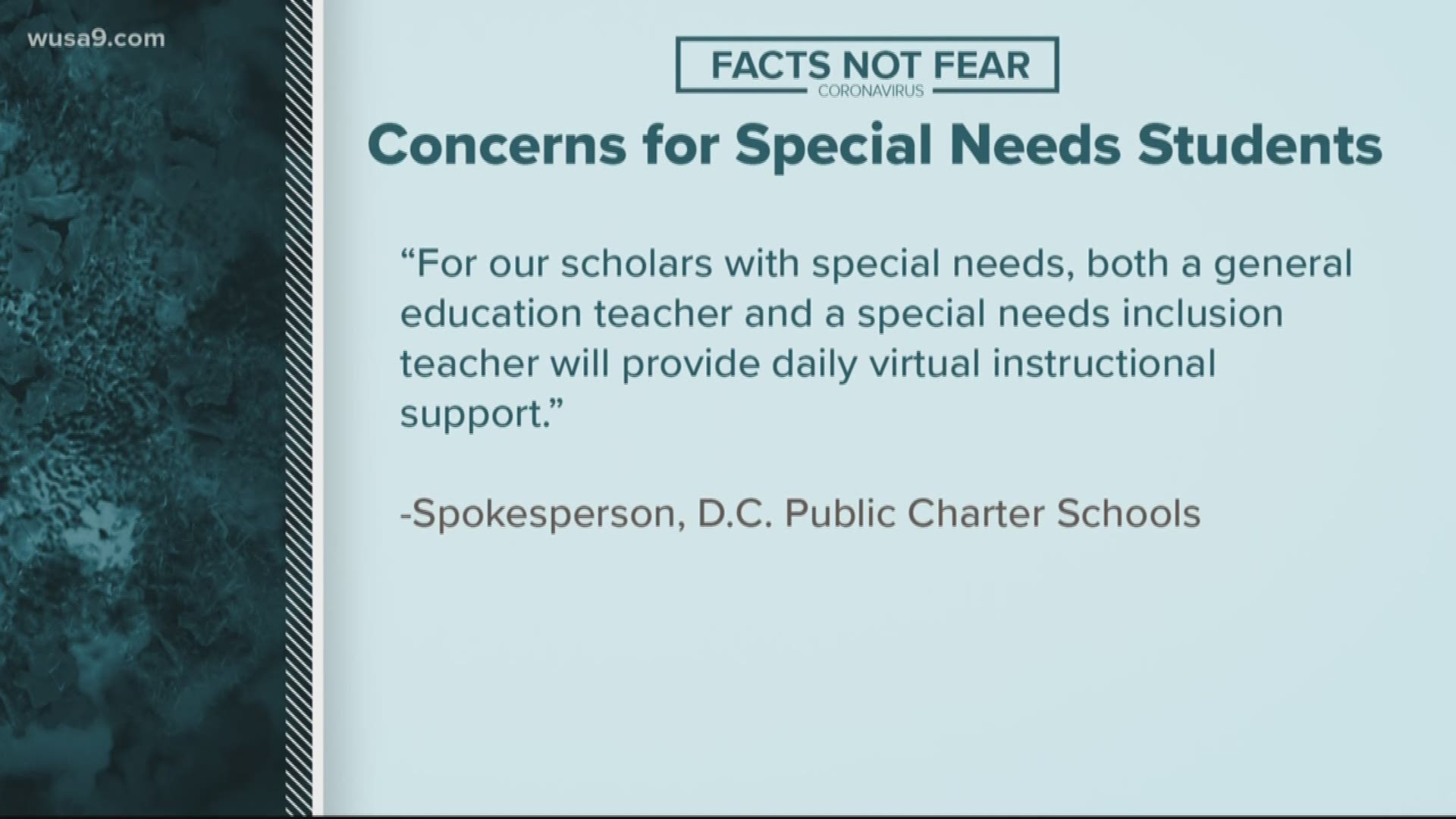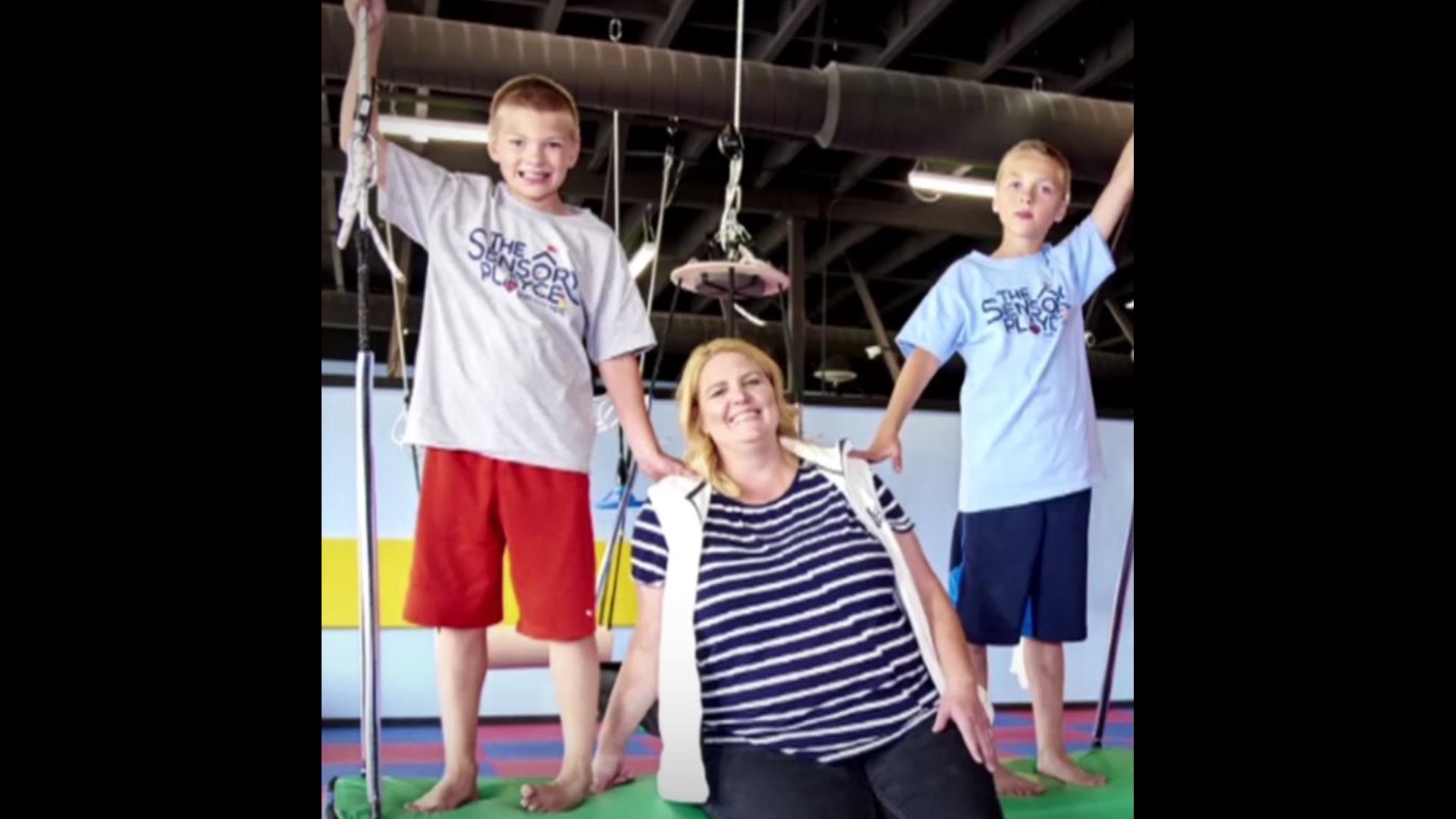WASHINGTON — As students in the District prepared to be out of school for at least another month, some parents raised concerns over what is being done to help children with special needs.
"How are they getting their distant learning?" Cathy Miler asked.
Miler criticized the way D.C. leaders and school officials are handling special needs students being out of school during the coronavirus pandemic.
Her son lives with autism and attends St. Coletta of Greater Washington Public Charter School in Southeast D.C.
Miler is concerned her son, and other special needs students, won't have the proper support needed to meet performance goals for the rest of the school year.
"Yes, it was a crisis, but I feel like as this crisis took place,the government itself didn’t prepare like they should have prepared before now," Miler said.
"I'm not able to give him his speech and language therapy. I'm not able to give him his occupational therapy. I’m not able to give him his physical therapy either."
Miler explained teaching special needs children comes with a specific skill set and education that many parents do not possess.
"They are missing out on more than an average child on a daily basis," Miller said.
St. Coletta PCS sent home daily activities for special needs students in the mail along with tips for parents from therapy providers and teachers.
The packet also included phone numbers, emails and online resources.
However, Miler said her children are unable to use digital tools because her family does not have internet access or a computer.
WUSA 9 reached out to the D.C. Public Charter School Board to see how it is addressing the concerns.
A board spokesperson asked Candice Burns with Friendship Schools to respond to the inquiry, and Burns explained public charter schools in the District share the same best practices.
RELATED: You may not be allowed to attend your loved ones' funeral during coronavirus pandemic. Here's why.
"For our scholars with special needs, both a general education teacher and a special needs inclusion teacher will provide daily virtual instructional support through the best online platform for that student. Virtual platforms include Google Classroom, Zoom, Skype and Google Meet," Burns said in a statement.
"Additionally, we are providing both virtual clinical therapy or consultative therapy as needed. As two-way communication between parents and teachers is paramount, our staff will be in constant contact with families and encourage them to share any needs or concerns as we grapple with this global pandemic," Burns added.
Some charter schools have also surveyed parents about their needs and provided tablets and hotspots.
Miler hoped her child with special needs and others get access to the help some schools are providing as parents are now forced to bring the classroom into their homes.


